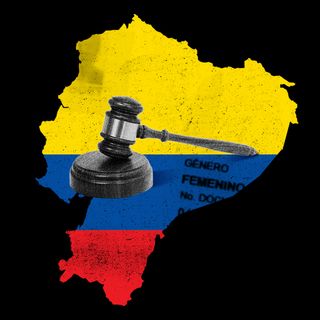In a recent interview with the Organiser, Rashtriya Swayamsevak Sangh (RSS) chief Mohan Bhagwat stated that LGBTQ and transgender people were “human beings having inalienable right to live”, and that their lifestyles were not in conflict with Hindu society. Citing an example from Hindu mythology, Bhagwat emphasized that “it is not that these people have never existed in our country”, and explained that those ‘proclivities’ were found in animals, too.
For some queer Indians, this validation through their religion might be significant in both self-acceptance and approval from families and society. But the use of ‘woke’ language by Bhagwat and his peers disguises – or ‘wokewashes’ – inconsistent and dangerous ideologies. Only a few years ago, the RSS had a markedly different stance on queer issues, stating that “same-sex marriages and relations are not in sync with nature”. This was regarding the decriminalization of Section 377 in September 2018, with RSS Joint General Secretary Arun Kumar adding that “traditionally too, Indian society does not accept such relations”. A year later, Bhagwat said that transgender people had “done many useful things in society”, citing Hindu scripture, and that “every society has its issues and ways of handling them”.
In 2016, the RSS called homosexuality a “socially immoral act in our society” that should be studied as a psychological issue instead of an outright crime. Although it has softened its stance on queer issues since then, the RSS has used its ambiguous approach to avoid heavy debate. Whether in an effort to prevent ostracizing its more orthodox supporters or to bring in a new demographic, they maintain that criminalisation is a “Victorian idea born out a Christian worldview”, and refuse to comment on what is “essentially a personal preference”.
Related on The Swaddle:
Culture Ministry Defends Twitter Tribute to Hindutva Ideologue Who Justified Caste, Supported Hitler
Akin to the ‘rainbow capitalism’ adopted by corporations to encourage sales and customer loyalty, the appropriation of ‘woke’ language and issues by the RSS and its leaders appears to be an effort to reach a greater audience, ie. more voters, while normalizing belief systems or practices that are otherwise rooted in bigotry. The motivation behind the RSS’s attempts to court the Dalit communities of India is a case in point. In his memoir, Dalit activist Bhanwar Meghwanshi notes the inherent contradiction within the RSS, wherein Dalit communities are incorporated within the fold and indoctrinated with prejudice against Muslims, but are nevertheless kept at arm’s length and treated as “lesser” Hindus. In the past, the RSS minimized casteism to “social evils” and the problems of “untouchability, disharmony, and inequality” as only “in our minds.”
The problem with woke-washing conservative ideologies, then, is that it is inherently contradictory. The RSS has stood for Hindu-based nationalism for decades and its sudden shift from calling homosexuality as “not compatible with norms of nature” to acknowledging “LGBT community as an integral to society” calls into question the sincerity of their position. Not only have queer issues been reduced to mere talking points within the RSS, it has also been leveraged as a weapon against their political opponents. Calls to Islamic clerks by RSS members to revisit their position on homosexuality have correspondingly increased.
Through statements like these, the RSS tokenizes the queer community without alleviating its struggles. The most incriminating aspect of the various statements by the RSS in acceptance of queer individuals, then, is how they’re framed — their purported worth and usefulness in Hindu scripture, rather than their intrinsic value as human beings.




